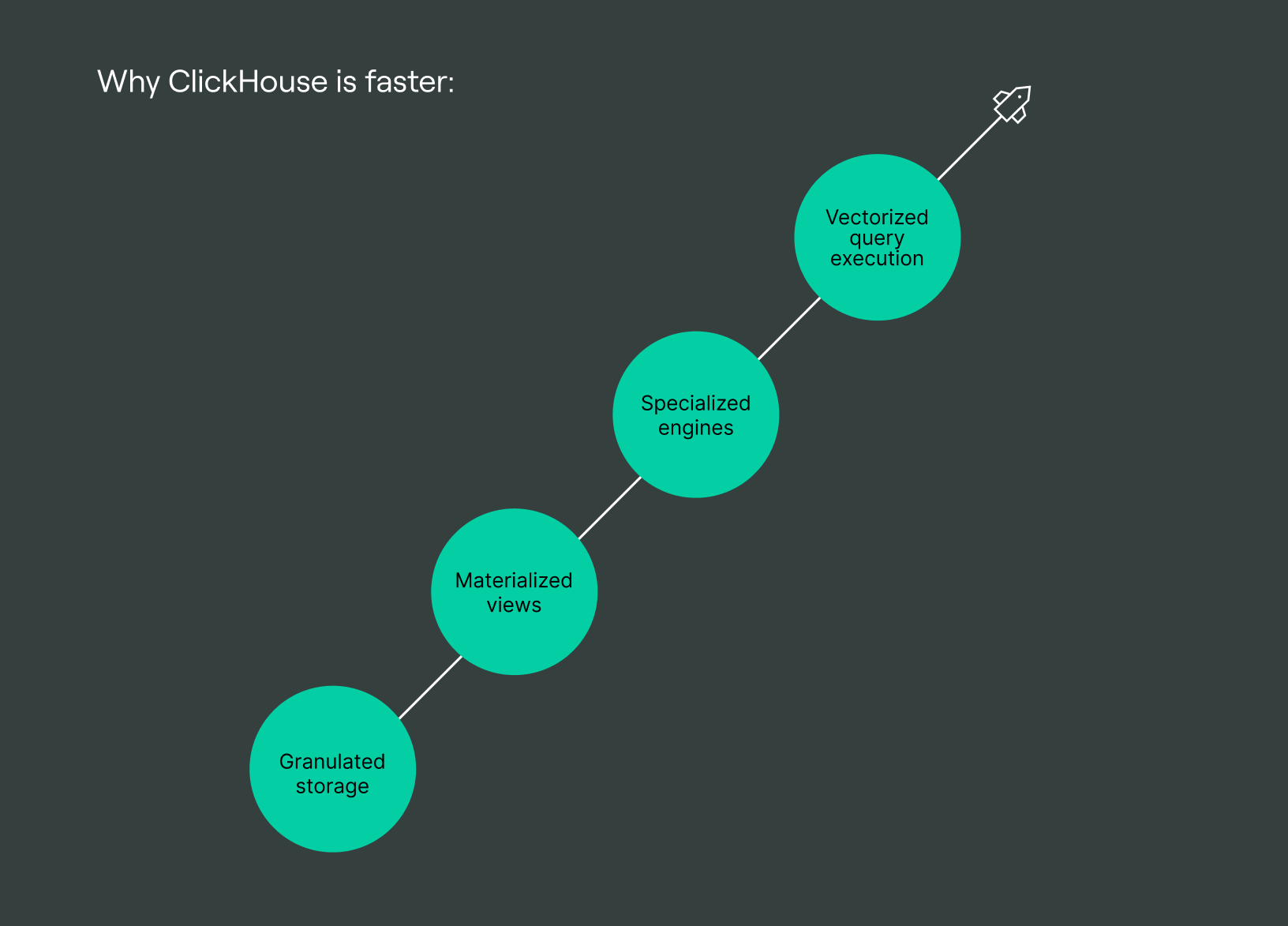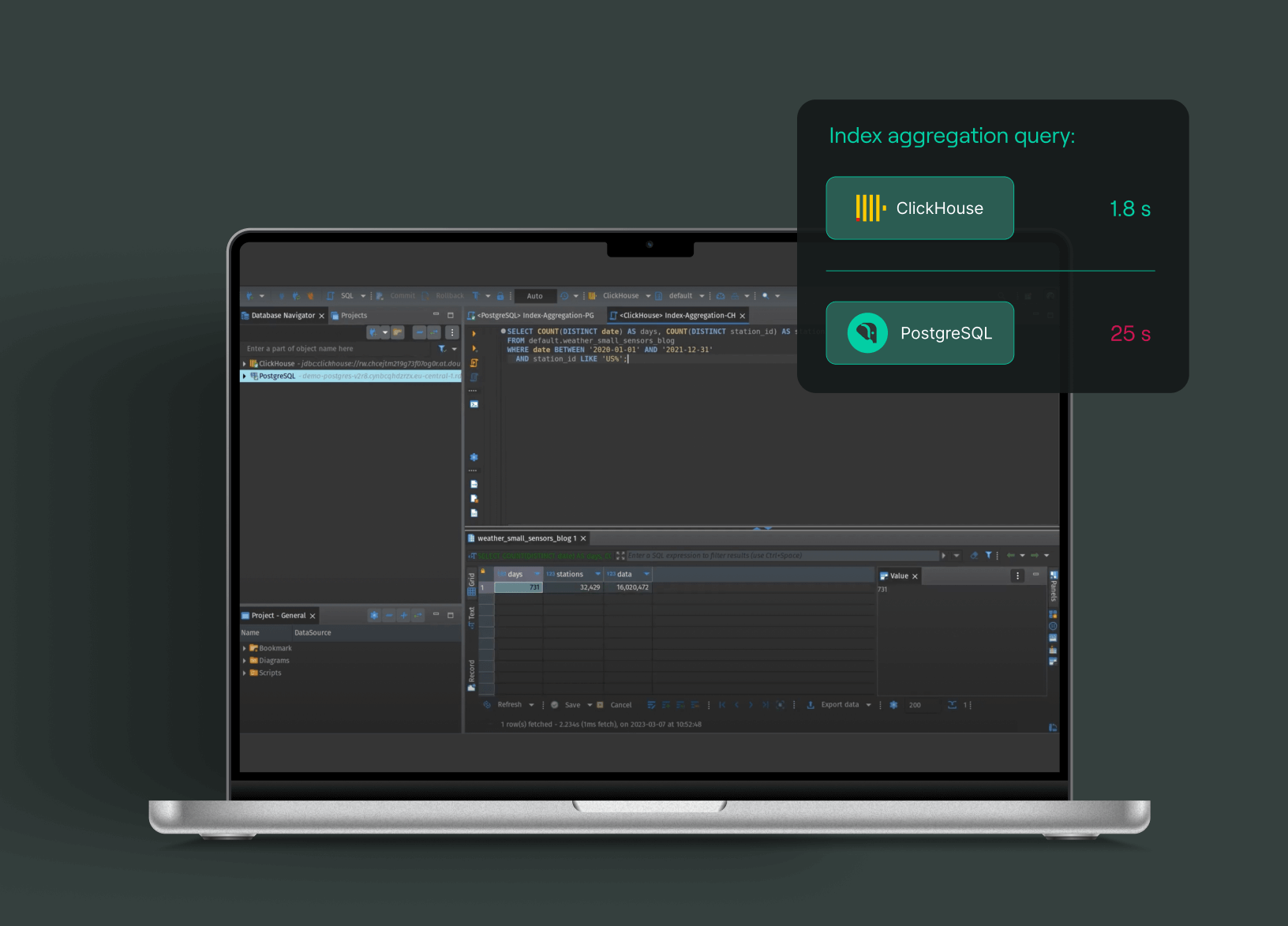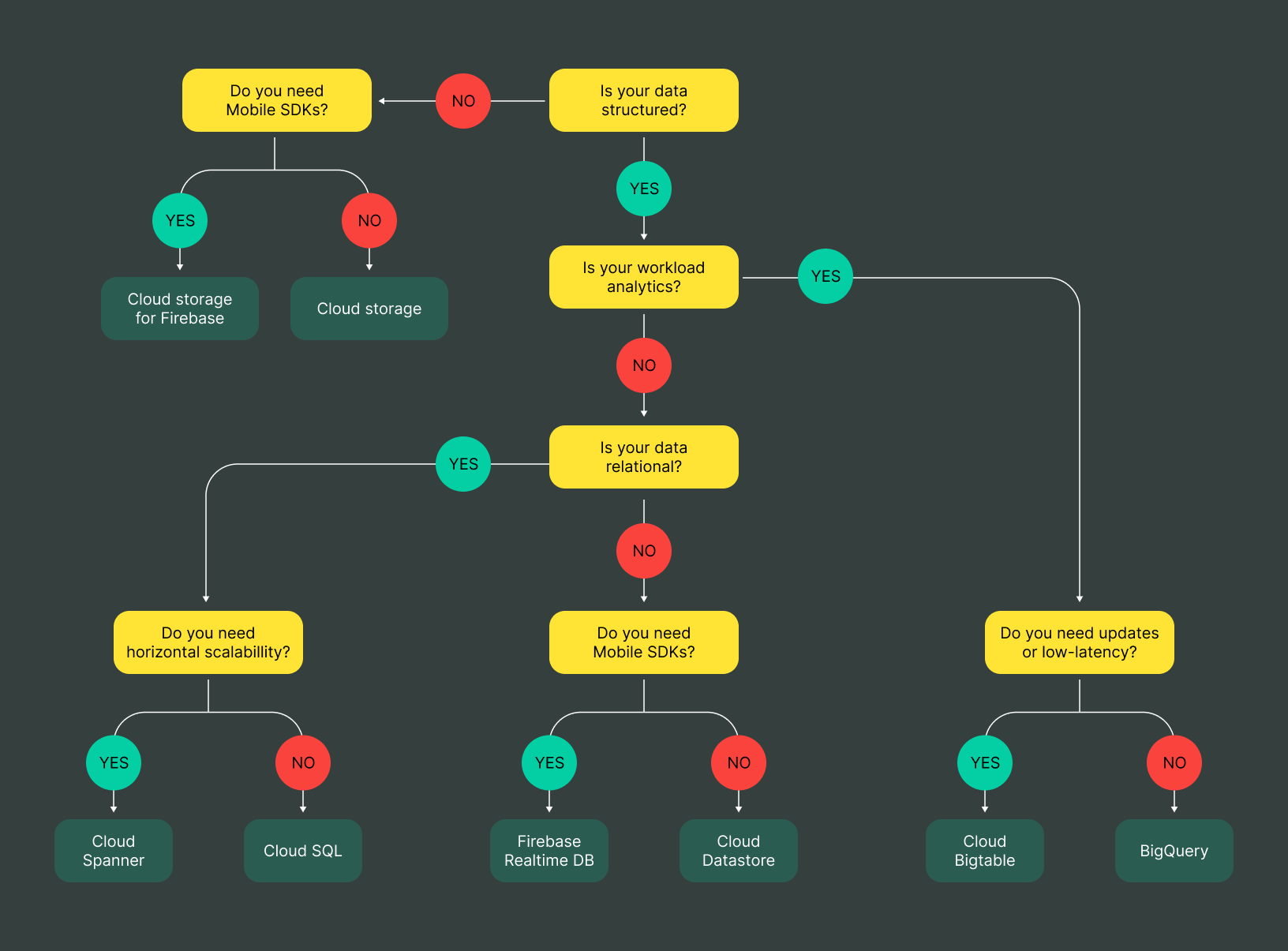
ClickHouse vs BigQuery: choosing the right data analytics platform
ClickHouse and BigQuery are two powerful data warehousing solutions that meet the needs of today’s businesses. With the growing demand for real-time analytics and massive data processing, organizations are seeking efficient and scalable platforms.
ClickHouse, an open-source columnar database management system, offers high-performance querying capabilities, while BigQuery, a fully managed serverless data warehouse, provides seamless integration with other Google Cloud services. In this comparison, we will explore the key features and differences between ClickHouse and BigQuery to help you decide on your data analytics requirements.
Importance of choosing the right analytics platform
When it comes to data analytics, choosing the right platform is crucial for businesses. It not only determines the efficiency and accuracy of data analysis but also affects the overall decision-making process. Therefore, exploring the key features and differences between ClickHouse and BigQuery is essential to make an informed decision that aligns with specific business needs, scalability requirements, and budget considerations. Businesses can enhance their data analysis capabilities by selecting the right analytics platform to boost performance and ultimately drive better decision-making.
ClickHouse is known for its ultra-fast processing speed and scalability, making it ideal for real-time data analysis. On the other hand, BigQuery offers seamless integration with other Google products and provides built-in machine-learning capabilities, making it suitable for businesses heavily reliant on Google infrastructure. By carefully evaluating these aspects, businesses can pick the platform that best suits their needs and improve their decision-making process.

In this article, we’ll talk about:
- Importance of choosing the right analytics platform
- What is ClickHouse?
- What is BigQuery?
- ClickHouse vs BigQuery: side-by-side comparison
- ClickHouse vs. BigQuery: comparison table
- What can DoubleCloud do to help you with ClickHouse?
- ClickHouse pros and cons
- BigQuery pros and cons
- ClickHouse vs BigQuery: final words
What is ClickHouse?
ClickHouse is an open-source columnar database management system designed for online analytical processing (OLAP). It was developed by Yandex, a Russian search engine company, and is known for its exceptional performance in handling large volumes of data. ClickHouse is specifically designed to support real-time data analysis, making it a popular choice for businesses that require fast query processing and real-time insights.
What is BigQuery?
BigQuery Bi engine is a fully managed, serverless data warehouse provided by Google Cloud. It is designed for large-scale, fast, and cost-effective analytics and can easily handle massive amounts of data. BigQuery uses a distributed architecture, allowing clickhouse users to run SQL queries on petabytes of data in seconds. It offers features like automatic scaling, high availability, and seamless integration with some Google Cloud services, making it a powerful data analysis and exploration tool.
ClickHouse vs BigQuery: side-by-side comparison
When comparing ClickHouse and BigQuery, it is important to highlight the former’s strengths and why it may be a preferable platform to BigQuery. While both platforms offer the ability to run most queries like SQL queries on large amounts of data, let’s take a look at how ClickHouse stands out with its impressive performance and scalability, or vice versa;
1. Architecture
BigQuery is a decoupled storage and computing architecture that is a pioneer in the field. It operates on a multi-tenancy basis with shared resources and allocates “slots” as virtual CPUs for SQL queries. The number of slots required is determined by BigQuery itself, without user control. Pricing options include a $/TB scanned basis or slot reservations. Each slot in BigQuery is equivalent to 0.5 vCPU and 0.5GB of RAM, and various models are available within the system.
On the other hand, ClickHouse is an on-premise solution with tight integration of Google Cloud storage and computing. It offers tuning options like indexes and merge trees to optimize performance. Known for delivering faster and expected queries with low latency, ClickHouse is considered challenging due to limited SQL support and significant engineering resources required for tuning and running. It can be applied to other scenarios where a 'cron job' is needed.
2. Data Types
In terms of data types, both BigQuery and Clickhouse offer a wide range of options to accommodate various data formats and structures. BigQuery works with standard SQL data types such as integer, float, string, boolean, date, and more specialized types like timestamp, time, and geographic data types.
Clickhouse, on the other hand, also provides similar data types but with some additional options like fixed-size integers, arrays, and nested structures. These additional data types in Clickhouse can be beneficial for solving and handling complex data structures and performing advanced analytics.
3. Performance
In terms of performance, ClickHouse offers impressive query execution speed, especially when dealing with complex analytical queries. Its ability to handle large data volumes efficiently makes it a popular choice for data-intensive applications. Additionally, ClickHouse’s support for fixed-size integers, arrays, and nested structures allows for more flexible and efficient data manipulation and analysis.
On the other hand, BigQuery also boasts powerful performance capabilities, particularly for handling large-scale data processing and analytics. It offers a fully managed, serverless architecture that can automatically scale to handle massive workloads.
To compare Clickhouse performance and that of BigQuery, a benchmark test was conducted using a large dataset. The results showed that ClickHouse outperformed BigQuery in terms of query execution time and data ingestion speed. However, it’s important to note that the performance of other databases may vary depending on the specific use case and workload. Therefore, it is recommended to thoroughly evaluate the requirements and objectives of the project before choosing between ClickHouse and BigQuery.
4. Scalability
As data volumes and workloads increase using load balancers, assessing how each platform handles this growth becomes essential. Both ClickHouse and BigQuery have scalability limitations, and understanding them is key to making an informed decision. Additionally, evaluating each platform’s auto-scaling capabilities and flexibility is necessary to ensure that the chosen database can meet the project’s evolving needs.
It is important to examine ClickHouse and BigQuery performance under different workloads, such as complex queries or real-time data processing. This will help determine which platform can efficiently handle the project’s specific requirements.
5. Storage efficiency
ClickHouse is known for its columnar storage format, which allows for efficient compression and retrieval of data. This can bring significant savings in terms of storage space and costs. On the other hand, BigQuery uses a distributed storage system that is optimized for handling large datasets. While it may not have the same level of storage efficiency as ClickHouse, it offers scalability and flexibility in terms of storage capacity.
Therefore, it is important to evaluate the specific storage requirements of the project and determine which platform can provide the most efficient and cost-effective solution. If the project requires fast and efficient data retrieval with minimal storage space, ClickHouse would be the ideal choice. However, if the project involves handling large datasets and requires scalability and flexibility in terms of storage capacity, BigQuery would be the better option. Ultimately, the decision should be based on the right needs and goals of the project.
6. Speed
In terms of speed, it is important to compare the real-time data processing capabilities of ClickHouse and BigQuery. ClickHouse offers streaming and batch processing options, allowing efficient data ingestion rates and quick query response times. This makes it suitable for time-sensitive analytics, where real-time data analysis is crucial. BigQuery also offers streaming and batch processing. Still, its focus is more on scalability and flexibility in terms of storage capacity rather than real-time data processing.

7. Cost-effectiveness
When it comes to cost-effectiveness, it is critical to evaluate ClickHouse and BigQuery’s pricing methods, cost structures, and price tiers. CClickHouse is an open-source solution, which means it can be downloaded and installed absolutely free of charge. For cloud deployment, a pay-as-you-go payment model is used, which depends on the instance size and consumption. BigQuery has a more complicated pricing structure depending on consumption and storage. BigQuery charges can be priced on a $/TB scanned basis or through slot reservations.
The potential cost reductions associated with each platform must be considered, considering storage, computation, and data transfer costs. By carefully examining these elements, organizations may judge which platform provides the best cost-effective solution for their unique requirements.
8. Data ingestion and integration
ClickHouse and BigQuery offer robust capabilities for ingesting data from various data sources and formats. ClickHouse supports a wide range of data ingestion methods, including batch loading, Kafka integration, and real-time streaming through its native TCP interface. On the other hand, BigQuery provides seamless integration with Google BigQuery Cloud Storage, allowing users in loading data from different file formats such as CSV, JSON, and Avro.
When integration with external systems arises, ClickHouse offers flexibility by providing connectors for popular Clickhouse table data warehouses such as Apache Hadoop, Apache Spark, and Apache Kafka. This allows users to transfer and integrate data between different systems quickly. In contrast, BigQuery offers a vast ecosystem of connectors and integrations with popular tools like Google Sheets, Google Analytics, and Google Ads.
9. Data replication
ClickHouse offers multiple data replication mechanisms, including asynchronous replication and distributed tables. These mechanisms ensure redundancy and fault tolerance by replicating data across multiple nodes, providing high availability, and protecting against data loss in the event of node failures. BigQuery, however, provides regional and multi-regional replication options, which replicate data across different geographic locations for improved availability and disaster recovery.
ClickHouse’s replication technology ensures consistency and data integrity across all nodes, making it a reliable and efficient solution for distributed data storage. In contrast, BigQuery’s replication options focus more on availability and disaster recovery, making it suitable for organizations that prioritize and store data redundancy and seamless access across different regions.
10. Querying and analytics capabilities
ClickHouse’s querying and analytics capabilities are classified as primary keys in the industry. Its SQL-based query language allows users to write and execute complex analytical queries easily. With support for advanced functions, users can perform in-depth analysis and gain valuable insights from their data. In comparison, BigQuery also offers powerful querying capabilities, but it’s important to evaluate the specific features and functionalities that each platform provides.
Additionally, ClickHouse offers built-in analytical tools that further enhance its analytics capabilities. These tools allow users to easily perform analytical tasks, such as data aggregation, filtering, and transformation. Moreover, ClickHouse supports real-time data processing, making it an ideal solution for applications that needs real-time analytics. It also offers efficient data compression techniques, which can help reduce storage costs.
11. Ease of use and administration
ClickHouse and BigQuery offer user-friendly interfaces and management features, but they differ in installation and setup. ClickHouse requires more manual configuration and setup than BigQuery, offering a more streamlined installation process. However, once ClickHouse is up and running, its user experience is highly instinctive and easy to navigate. On the other hand, BigQuery provides a more polished and user-friendly interface right from the start.
Both platforms offer query optimization techniques, but ClickHouse’s unique columnar storage architecture allows for faster query response times and more data processing.
12. Security and compliances
When it comes to security, BigQuery ClickHouse both offer robust features to ensure the protection of data. ClickHouse Cloud provides authentication, authorization, and encryption capabilities, allowing users to control and secure access to their data against unauthorized access. Similarly, BigQuery also offers authentication and authorization mechanisms and encryption at rest and in transit to safeguard sensitive information.
In terms of compliance certifications and standards, both platforms have made efforts to meet industry requirements. For example, Clickhouse achieves GDPR compliance, ensuring that it adheres to the regulations set forth by the European Union for the protection of personal data.
Additionally, ClickHouse also offers features such as access control lists (ACLs) and role-based access control (RBAC) to enhance data security further. On the other hand, BigQuery has obtained various compliance certifications, including ISO 27001 and SOC 2, demonstrating its commitment to maintaining a high level of security and compliance.
13. Use cases
BigQuery is a serverless data warehouse suitable for internal BI and reporting and is tightly integrated with GCP, making it convenient for Ad-Hoc analytics and ML use cases. However, it makes resource allocation decisions, making it not suitable for operational use cases and data apps with consistent and predictable performance.
Clickhouse, designed for low-latency query execution runtime, is suitable for engineering managed operational use cases and customer-facing data apps but not for general-purpose data warehouses, Ad-Hoc analytics, or ELT.
14. Integration with other tool
Some popular data analysis, visualization, and data pipeline tools that ClickHouse integrates with include Apache Spark, Tableau, Power BI, and Apache Kafka. ClickHouse provides connectors, APIs, and ecosystem partnerships that enhance interoperability with these tools, allowing users to integrate ClickHouse into their existing data workflows seamlessly.
Comparatively, BigQuery also offers a wide range of connectors and APIs for integration with various tools, such as Google Data Studio, Looker, and Apache Beam. Both ClickHouse and BigQuery prioritize compatibility and integration capabilities to ensure smooth data analysis and exploration experiences for users.
15. Community and support
The ClickHouse Cloud community is rapidly growing, with active users and developers sharing ideas and experiences through online communities and forums. The platform’s documentation is comprehensive and regularly updated, providing detailed information on various aspects. Platform providers are responsive to user queries and actively engage with the community, ensuring access to support.
Meanwhile, BigQuery’s large and active community offers ample developer support and following resources, with users sharing knowledge and best practices. The well-structured and regularly updated documentation makes it easy for users to find relevant information and troubleshoot issues.
16. Limitations and constraints
When comparing BigQuery and ClickHouse, it’s crucial to consider their limitations and constraints. ClickHouse has data size limitations, making it unsuitable for large datasets. BigQuery has a higher data size limit, allowing for the analysis of larger volumes. ClickHouse may have query complexity restrictions, while BigQuery handles complex queries efficiently. Data consistency can be challenging in ClickHouse, while BigQuery offers strong guarantees.
Users should know about these limitations and consider their needs when choosing between the two platforms. BigQuery may offer better performance and scalability for larger datasets and more complex analytical needs. Understanding the trade-offs and limitations of each platform helps users make informed decisions and maximize the value from their data analysis efforts.
17. Deployment and operations
ClickHouse offers a variety of deployment options, including on-premises, Clickhouse cloud based, and containerized deployments. This flexibility allows many to choose the best deployment method for their needs and infrastructure. On the other hand, BigQuery are fully managed services provided by Google Cloud, meaning deployment is simplified, and users do not need to worry about infrastructure management.


DoubleCloud Managed Service for ClickHouse
An open-source, managed ClickHouse DBMS service for sub-second analytics. Don’t take two days to set up a new data cluster. Do it with us in five minutes.
Scaling is also an important consideration when evaluating these platforms. ClickHouse is known for its ability to handle petabyte-scale data sets and perform real-time analytics on them.
ClickHouse vs. BigQuery: comparison table
|
Difference |
ClickHouse |
BigQuery |
|
Architecture |
Coupled storage & compute |
Decoupled storage & compute |
|
Data types |
Supports various data types |
Supports various data types |
|
Performance |
Emphasizes low-latency queries and performance |
Optimized for large-scale data processing |
|
Scalability |
Scales efficiently with hardware resources horizontally and vertically to petabyte scale |
Scales efficiently only in a managed environment |
|
Storage efficiency |
Efficient storage with a focus on compression |
Effective storage management for large data |
|
Speed |
High-speed queries with low latency |
Efficient query execution and good response time |
|
Cost-effectiveness |
Cost-effective with no licensing costs |
Offers cost-saving options for pricing |
|
Data ingestion & integration |
Provides various data ingestion methods and supports different integrations |
Offers seamless data integration capabilities |
|
Data replication |
Supports replication for data redundancy |
Provides replication options for data backup |
|
Querying & analytics |
SQL-based language with support for joins, federated queries, and more |
SQL-based querying with advanced analytics |
|
Ease of use & administration |
On premise solution requires engineering resources |
User-friendly interface and easy management |
|
Security & compliances |
Provides security features and compliance support |
Offers robust security and compliance measures |
|
Use cases |
Ideal for low-latency analytics and OLAP |
Suitable for large-scale data analysis |
|
Integration with other tools |
Supports integration with various tools |
Integrates well with other Google services |
|
Community & support |
Growing community with good support |
Strong community and reliable support |
|
Deployment & operations |
Requires dedicated engineering efforts |
Managed service with streamlined operations |
What can DoubleCloud do to help you with ClickHouse?
DoubleCloud manages ClickHouse, an open-source columnar database management system, enabling businesses to optimize data analysis processes. Their managed ClickHouse service eliminates manual setup and maintenance, allowing businesses to focus on core operations while enjoying powerful data analysis and exploration capabilities.
ClickHouse pros and cons
|
Pros |
Cons |
|
High-performance analytics engine |
Lack of native support for streaming new data or old |
|
Efficient compression and storage |
Limited ecosystem compared to some competitors |
|
Scalable and distributed architecture |
Requires expertise for optimal tuning in self-managed solutions |
|
Low-latency queries |
Limited support for data ingestion |
|
Real-time data processing |
Limited availability of third-party connectors |
|
Cost-effective |
BigQuery pros and cons
|
Pros |
Cons |
|
Real-time analytics with intermidiate latency |
High resource consumption for large data volumes |
|
Scalable and distributed architecture |
Complex setup and administration for some users |
|
Native support for time-series data |
Limited support for complex queries and joins |
|
Efficient data ingestion and indexing |
Requires expertise for optimal tuning |
|
Suitable for event-driven data analysis |
Limited SQL support compared to traditional databases |
|
High performance for interactive queries |
Limited support for transactional operations |
ClickHouse vs BigQuery: final words
Comparing ClickHouse and BigQuery, it is evident that both platforms offer powerful capabilities for data storage and analysis. However, the choice between the two ultimately depends on a business’s specific rights and priorities.
For those seeking a comprehensive solution that combines the strengths of both ClickHouse and BigQuery, DoubleCloud offers a compelling option. By leveraging the benefits of both platforms, organizations can benefit from robust data storage and analysis capabilities.

Managing best in-class open-source tools so you can focus on the data
Get started with DoubleCloud



